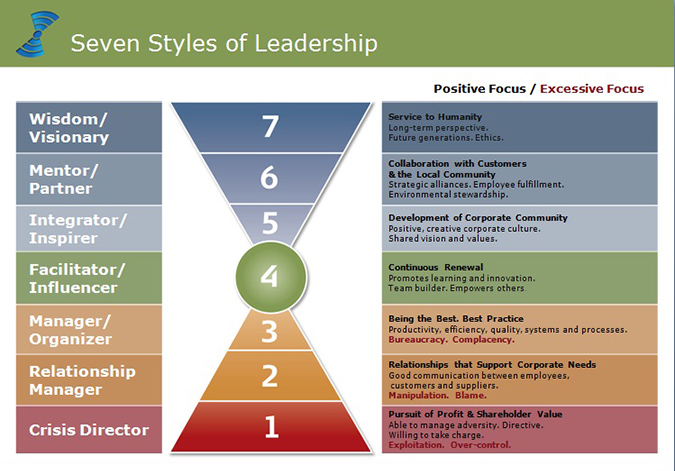Andy Trainer
10 Jun 2013
Leading Upwards
True leaders lead whether they've been given an official position of power or not.
On our Leadership Training Course, you'll learn that it takes more than just a title to be a leader; it takes courage, passion, empathy, confidence and a whole lot more.
Being able to lead effectively when you're not a designated leader is tough.
It's a fine line to tread between being helpful and being arrogant or egotistical, and this is especially the case with how your boss or superior will react to you taking some of the reigns.

With that in mind, I thought we'd take a look at how to lead upwards, without encroaching on your manager's territory.
This is the sort of advanced people management skill that will really give your career a boost in the long-term.
Understanding Yourself
Analyse your skills
If you're aware of where your strengths and weaknesses lie, you'll be better equipped to deal with others, and dealing with others is the fundamental goal of leadership.
Is communication something you're comfortable with or does it need working on? Are you a confident talker or a thoughtful listener (or both)? Do you lead with charisma or are you reserved?
Asking these questions, and others, of yourself will allow you to get to grips with who you are in a professional capacity, and only then can you begin to lead others.
If you're still struggling to assert yourself, you can always try our Assertiveness Training which will help you understand and develop your strengths.
When asked which traits they valued the most in a leader, top CEOs said creativity and integrity.

These may seem like innate characteristics but they can in fact be learnt. Take a look at this post on developing creativity and this one on leading with integrity.
You also need to think about the kind of leader you are, or want to be. Does your leadership style fit one of these categories?

Set clear goals
What are your ambitions within this role and in your career more generally? This might seem unrelated to leading upwards but actually it's key.
The way you act now could determine the path you take in your career, particularly within your current organisation, and so if you have lofty ambitions, you may want to consider how you currently conduct yourself.
Know your role
What are your responsibilities? And what is within your domain? Knowing the answers to these questions is absolutely essential for leading upwards.
Encroaching on another person's role will not endear you to anyone, let alone your boss, and equally, shifting blame or shirking responsibility is pretty much the exact opposite of what a good leader ought to be doing.
Have a clear picture of where you sit within the organisation and you'll find you'll limit the confrontation over the small things.
Understanding Your Superiors
What kind of person are they
Leading up to your boss requires an understanding of the sort of person that they are. Can they take (constructive) criticism? Do they get easily riled up?
Do they fall into one of these traditional personality types?

If they do, it's worth taking note as to the sorts of things that will irritate them and they best way in which they like things to be approached.
It's also worth thinking about the sort of leader that they are, using the graphic from before.
Understanding their goals
Your boss will have various goals, both personal and professional. In their eyes, there are only things that help them on their way and things that hinder them.
If you want to lead up to your boss, you need to help them achieve their goals, but that requires finding out what they are first!
Get to know your boss on a personal level, and try to keep abreast of any changes in strategy within the business. Staying aware of these goals will allow you to help and work towards them on their behalf.
Understanding Your Relationships
How you normally react to your superiors
The way in which you deal with those around you is as mentioned, the central point of leadership. So how do you think you act with your boss? Are you sarcastic? Do you put down their ideas? Are you subservient? Or do you listen and disagree respectfully only when necessary?
Your relationship with your boss is key to everything that you do in your job. The more reactive and reactionary you are as an employee, the less you seem to be a leader to your boss.
They're looking for proactive and constructive feedback, so make sure that's how you deal with any encounters with them.
Not acting differently around them
Being a leader means being true to yourself (note the opening point). If you find yourself completely switching between personalities when dealing with your boss and when dealing with colleagues or subordinates, you aren't leading upwards.
Yes, your boss may demand a certain level of formality and respect that you might feel uncomfortable giving to those you manage but then as J.K Rowling said: '
“If you want to know what a man's like, take a good look at how he treats his inferiors."
Really the key takeaway here is to be yourself and be the same around everyone, from those below you to those above you in the pecking order. Only then will you be truly leading upwards.